Nigeria stands to witness yet another testament of democracy on May 2023; a breathtaking display of power transitioning with remarkable uncertainty and serenity. After a grueling and divisive election that seemed to shake the very foundation of the nation, Senator Bola Ahmed Tinubu ascended the throne as the 16th President of the Federal Republic of Nigeria. History is unfolding before our eyes, and the weight of over 250 million lives now rests squarely on his shoulders.
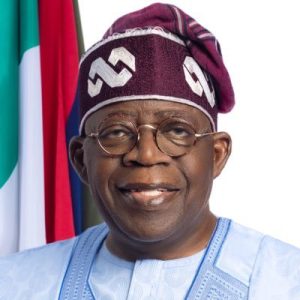
Rebecca Williams, a sagacious political analyst, aptly remarked, “the peaceful transition of power is a cornerstone of democracy, symbolizing the strength and resilience of a nation. As President Tinubu assumes office, it marks a pivotal moment in Nigeria’s history, if it truly highlight the continuous growth and evolution of its democratic processes.
On the other hand, one cannot help but marvel at the seamless yet sturdy nature of this transfer of power. Despite his background as a former military general, many had feared that the former President Buhari would cling to authority, reluctant to relinquish his grip on the reigns. However, his demeanour in the days leading up to the inauguration revealed a man who was not only willing but eager to welcome his successor with open arms.
Leadership, as Michael Thompson, a scholar well-versed in the subject, asserts, is not merely a destination but a profound journey. It is not measured solely by the conclusion reached but by the profound impact made along the way. Former President Muhammadu Buhari reached the end of his own leadership journey, but his indelible footprint will forever mark the annals of Nigerian history. His legacy is a tapestry woven with both commendable and questionable threads; shaping a narrative that time cannot erase.
Under his stewardship, Nigeria witnessed some level of progress in infrastructural development, social intervention programs, agricultural reform, and attempts to combat corruption. The construction of railways traversing various parts of the country and the completion of the long-awaited Second Niger Bridge stand as testaments to his administration’s achievements.
Yet, he will also be remembered as a distant president, often relating to Nigerians as though they were neighbors living far beyond his reach rather than cherished members of his own family. His second term was marred by a dark shadow of bloodshed, with tragic killings haunting the nation.
Instead of fostering harmonious grazing practices, he inadvertently trusted the Fulani herdsmen upon the Nigerian populace, resulting in a tragic loss of countless lives. Furthermore, ill-conceived policies such as the ill-fated naira redesign and the mishandling of the infamous EndSARS movement inflicted hardships that will forever remain etched in the hearts of Nigerians. The burden of heavy debts left behind for the incoming administration to grapple with serves as a chilling reminder of the challenges that lies ahead.
The World Bank, in its scathing 2022 Nigeria Public Finance Review report titled “A Better Future for All Nigerians,” lamented the stagnation of Nigeria’s development since 2015. The grim reality is that power generation, which stood at 4,949 megawatts in 2015, has plummeted to a meager 2,409.50 megawatts under the former President Buhari’s watch. The Association of Power Generation Companies has reported a staggering 98 collapses of the national grid during his tenure.
They say uneasy lies the head that wears the crown, and indeed, the former President Mohammadu Buhari has shouldered the burdens of his office to the best of his abilities before passing the baton. Now, it is Bola Ahmed Tinubu who assumes the crown, and the nation eagerly awaits the dawn of his reign.
Let us now turn our gaze to the unfolding of events as President Tinubu takes his rightful place at the helm, embarking on a voyage that will determine the fate of a nation on the cusp of an uncertain but potentially magnificent future.
A. HEAVY FINANCIAL DEBT/BURDEN
The weight of heavy financial debt inherited from the previous administration adds a significant burden to the new government. As highlighted, Buhari’s legacies include an alarming N77 trillion debt and a staggering 22% inflation rate. Each Nigerian is approximately owing a debt of N384,864 according to international Centre for investigative Reporting ICIR. This daunting financial burden left behind by the previous administration is likely to have various repercussions for the new administration.
The effects are likely to include,
Fiscal Constraints: The substantial debt will curtail the new administration’s fiscal maneuverability, potentially leading to reduced funding for critical sectors such as healthcare, education, infrastructure, and social welfare programs.
Economic Stability: Elevated debt levels can elevate borrowing costs, diminish credit ratings, and undermine investor confidence, posing challenges to economic growth and job creation.
Policy Adjustments: Addressing the debt burden may necessitate implementing austerity measures or fiscal reforms, which could face resistance and be met with public discontent.
Public Perception and Expectations: Effectively managing public perception regarding the debt issue and communicating the administration’s strategies for resolution will be crucial in maintaining public support.
International Relations: The burden of debt may impact Nigeria’s relations with international financial institutions, making it more challenging to secure favorable terms, trade agreements, foreign aid, and investment opportunities.
Navigating through this labyrinth of financial debt will be an arduous task for President Tinubu and his administration, requiring astute decision-making and strategic planning to steer Nigeria towards a path of economic stability and growth.
B. PUBLIC ACCEPTANCE/REJECTION OF THE NEW ADMINISTRATION
As the inauguration of President Bola Ahmed Tinubu unfolds, a mixture of emotions flows through the veins of Nigerians, forming a river of possibilities. The question lingers: Will the people accept the new president? The answer is both yes and no. While Eagle Square, the inauguration venue, was teeming with enthusiastic supporters, a different sentiment emerged among the youth on social media.
The emergence of President Tinubu has sparked a range of reactions. On platforms like Twitter, May 29, 2023, has been dubbed “Black Monday: the day democracy died” by many skeptical young Nigerians, casting doubt on the credibility of the recent presidential election. Investigative journalist David Hundeyin (@DavidHundeyin) posted a controversial image of Tinubu with the caption: ‘Tyrone, the neighborhood dope man from Chicago South Side, thinks that using his dirty money to compromise Nigeria’s institutions means that the Nigerian people will accept him as their “president.” Tyrone is about to learn what happens when you force yourself on people.’
The reactions to Hundeyin’s posts have been fervent. One netizen, @therealvev, commented: “A Necessary Disclaimer: Tinubu stole the people’s mandate and bribed his way to the top. He does not represent Nigerians. Nigerians are not dope-pushers and drug dealers. Nigerians are hardworking and industrious people. ‘The people’ who support BAT are doing so for their own personal interests to steal from Nigeria’s resources. Do not be deceived. The True Patriots of Nigeria are not in support of a government that has no regard for democracy and her people.”
The belief that Tinubu’s victory lacks a popular vote can have far-reaching implications, including the following:
I. Concerns arise regarding the democratic process and the legitimacy of President Tinubu’s rise to power.
II. Perceptions of rigging can erode public trust and diminish support for Tinubu’s administration.
III. The absence of a popular mandate may lead to divided public opinion and potential discontent among those who desired a more participatory approach to leadership succession.
IV. President Tinubu must address these concerns, engage with the public, and demonstrate effective governance to rebuild legitimacy and regain public support.
C. INSECURITY CONCERN
Addressing the alarming rate of insecurity in Nigeria must be President Tinubu’s utmost priority. With an average of 21 daily killings in 2022 alone and Nigeria’s drop to the 8th position in the Global Terrorism Index, decisive action and comprehensive strategies are expected to restore peace and protect citizens.
President Tinubu is inheriting a grave security challenge. The first tenure of the former administration recorded over 25,794 lives lost, and the first quarter of this year saw the deaths of 1,151 civilians and 79 security operatives.
To tackle this challenge, robust measures are required, including improved intelligence, strengthened law enforcement, enhanced border security, and regional cooperation against terrorism. Additionally, addressing underlying causes such as socio-economic disparities and unemployment is crucial.
President Tinubu aims to implement proactive security measures, collaborate internationally, and tackle root issues, ultimately restoring peace, ensuring citizen safety, and elevating Nigeria’s security ranking.
D. SPECIFIC DISTRACTIONS AND GOVERNANCE
In Tinubu’s government, specific distractions in Nigeria can divert focus from key issues and hinder effective governance. These distractions may include political infighting, corruption scandals, ethnic or religious tensions, social unrest, and economic challenges.
To navigate these distractions and prioritize governance, the new administration should aim to address them head-on. By promoting transparency, combating corruption, fostering interethnic and interreligious harmony, and implementing inclusive economic policies, the government strives to create an environment conducive to progress.
The impact of distractions on governance cannot be underestimated. It requires steadfast commitment, proactive measures, and strong leadership to ensure that the focus remains on addressing the needs of the people and achieving sustainable development.
However, specific distractions such as political infighting, corruption, social unrest, and economic challenges pose hurdles to effective governance in Nigeria. The government’s commitment to transparency, harmony, and inclusive policies is crucial in overcoming these distractions and delivering positive change.
E. HEALTH AND FITNESS ISSUES
The public holds genuine concerns about President Tinubu’s health and its potential impact on his leadership. While specific details remain undisclosed, it is known that he has faced health challenges in the past.
A leader’s physical and mental well-being directly influences their ability to govern effectively. It is essential for the New Nigeria’s President to prioritize his health to make sound decisions and handle the demands of the office.
By prioritizing the president’s health, the government aims to ensure he can fulfill his responsibilities effectively. However, only time will reveal the extent to which these measures can mitigate any potential impact on Tinubu’s leadership.
However, the concerns about Tinubu’s health raise valid questions about its influence on his leadership. Recognizing the importance of maintaining good health and fitness, the new administration’s efforts to address these concerns signal their commitment to his well-being.
F. THE LINGERING COURT CASE
The court case challenging President Tinubu’s election victory carries significant implications for his administration. A loss in court could disrupt governance, question legitimacy, and hinder policy implementation.
The consequences would be far-reaching, including political instability, loss of public trust, and setbacks in addressing pressing issues. Government operations may be interrupted, and a period of transition could arise, diverting attention and resources.
The outcome of the court case holds the power to shape the trajectory of Tinubu’s presidency, with potential consequences impacting the nation’s stability and progress.
FINAL THOUGHTS
President Tinubu’s presidency hangs in the balance as the court case looms overhead. The stakes are high, and the outcome could shatter dreams and ignite a storm of uncertainty. If he were to lose, the very foundation of his administration would crumble beneath him.
The impact would reverberate throughout the nation, plunging Nigeria into a sea of political turmoil and eroding the trust of the people. The promises made, the hopes kindled, all dashed in an instant. The weight of disappointment would hang heavy in the air, casting a shadow over the path forward.
In the face of such adversity, Tinubu must summon every ounce of strength and determination. He must rise above the doubts and forge ahead, undeterred by the obstacles that lie in his way. It is a test of character, a battle for redemption.
The fate of the nation rests on his shoulders. The dreams of millions hinge on his ability to lead with integrity and conviction. There is no room for faltering or wavering. He must navigate these treacherous waters and emerge stronger, guided by a vision of unity and progress.
It is a journey fraught with emotion, but within the depths of despair, there lies a flicker of hope. The resilience of the Nigerian people, their unwavering spirit, will serve as a beacon in the darkness. Together, they can overcome the challenges that lay ahead and carve a new path towards a brighter future.
In this pivotal moment, Nigeria stands at a crossroads. The destiny of a nation hangs in the balance. Will President Tinubu rise above the storm and lead Nigeria towards prosperity? Only time will tell, as the echoes of the court case reverberate through the corridors of power, shaping the course of history.
Story by Ayegba Emmanuel

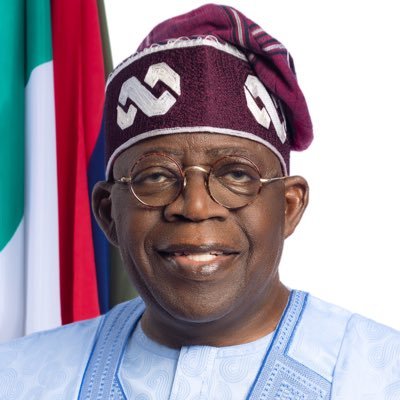


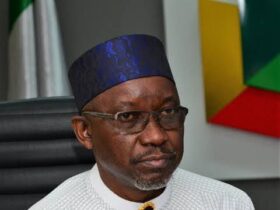
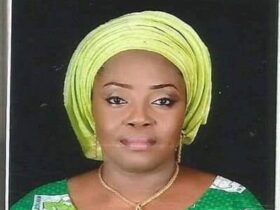
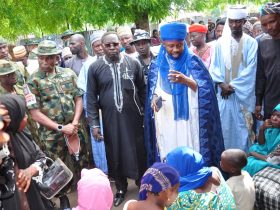
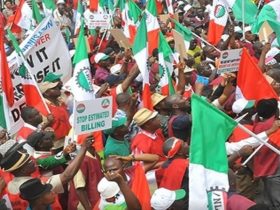

In a country with kangaroo system of judiciary, where only the poor are are judged according to their level of poverty.
My brother our judicial system has been compromised, only death can unseat the current president.
I LeFT 🚶♂️🚶♂️🚶♂️